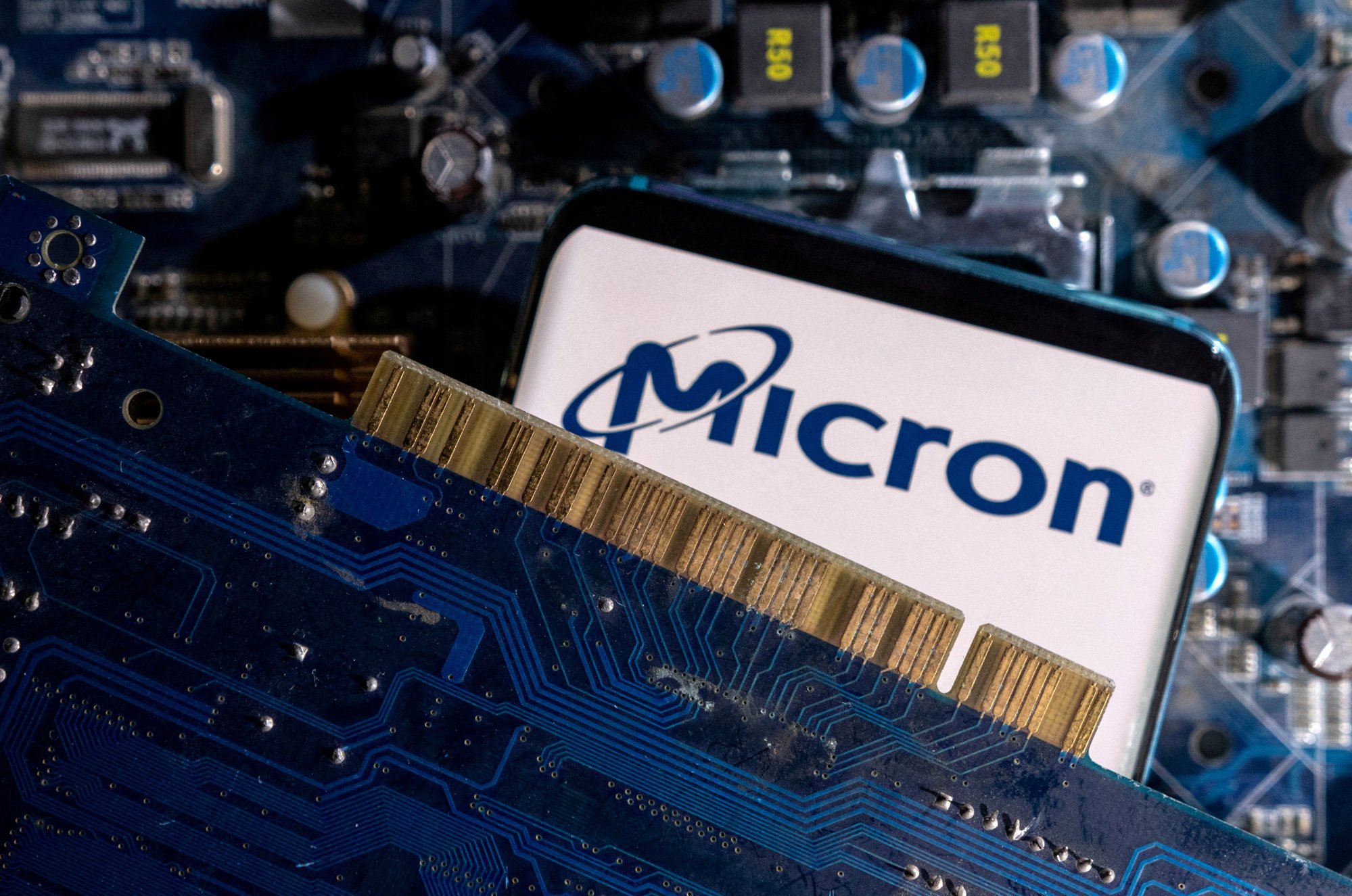
China bans Micron chips for ‘severe cybersecurity risks’, drawing rebuke from Washington as tech war revs up
- The US chip maker failed a cybersecurity review, making its products prohibited for sale to China’s critical information infrastructure operators
- The ruling will effectively erase a market that contributed about 11 per cent of Micron’s total revenue of US$30.8 billion in 2022
The Chinese government said on Sunday that products made by Micron posed a national security risk and would be banned for sale to China’s key information infrastructure operators in a move seen as retaliation for Washington’s tightened restrictions on chip exports to China.
The US Commerce Department issued a statement saying it “firmly opposes restrictions that have no basis in fact”, calling the Micron ruling and recent “raids and targeting of other American firms” inconsistent with Beijing’s stated commitment to an open market and transparent regulatory framework.
“We will engage directly with PRC authorities to detail our position and clarify their action,” the department said, using the abbreviation for People’s Republic of China. “We also will engage with key allies and partners to ensure we are closely coordinated to address distortions of the memory chip market caused by China’s actions.”
Micron said in an email on Monday that it was aware of Beijing’s decision and assessing its next steps. “We look forward to continuing to engage in discussions with Chinese authorities,” the company said.
The Cyber Security Review Office under the Cyberspace Administration of China (CAC), which announced an investigation into Micron products in late March, did not disclose which products it reviewed or the methods it used to review them.
It said the US memory chip giant failed to pass a cybersecurity review, making its products prohibited for sale to China’s critical information infrastructure operators (CIIOs), which include a wide range of entities from telecom operators to banks and water utilities. CIIO regulations in China are expansive, covering numerous sectors considered crucial to national security and people’s livelihoods, including public interest sectors such as communications and information services, energy, transport, water resources and finance.
Smartphone giant Oppo’s closure of chip design unit Zeku triggers speculation
The decision comes 50 days after the CAC launched a probe into Micron’s products in late March on the grounds of national security. According to the latest statement, Micron’s products were found to have “severe cybersecurity risks, posing significant security risks to China’s critical information infrastructure supply chain and to our national security”.
The ruling will have a de facto effect of banning the sale of Micron products in China, effectively erasing a market that contributed about 11 per cent of the company’s total revenue of US$30.8 billion in 2022, comprising chip products such as DRAM, NAND flash memory and solid state drives.
Micron’s top customers in China, ranked by contributions to its revenue, were Lenovo, Xiaomi, Inspur Electronics Information, ZTE, Coolpad, China Electronics Corp and Oppo, according to a search of Bloomberg data.
“The text [of the CAC statement] did not show if the ruling has recourse,” said a Beijing-based cybersecurity attorney.
Micron did not immediately reply to a request for comment sent outside of business hours on Sunday.
China’s move against Micron, the first involving a major US chip maker, was seen by some industry watchers as Beijing’s retaliation against the US chip company after it lobbied Washington to take measures to restrict China’s access to advanced chip technologies.
In October last year, the Biden administration tightened exports of advanced US semiconductor technologies to China, including chip making equipment and design software, citing the potential risk of US core tech getting into the hands of the Chinese military.

Analysts said Beijing’s cybersecurity probe into Micron, the world’s fourth-largest semiconductor company, could shake up the memory chip supply chain in China, and prove a boon for South Korean memory chip makers Samsung Electronics and SK Hynix, as well as sanctions-hit Chinese supplier Yangtze Memory Technologies Corp.
Wu, who joined Micron in 2018 and will continue to serve as vice-president of its DRAM packaging and test operations in the northwest city of Xian, said in a statement that Micron China “plays a critical role in enhancing the company’s global footprint and DRAM technology leadership”.

